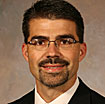Commentary on Psalm 85:1-2, 8-13
The biblical texts for the second week of Advent are Isaiah 40:1-11, Psalm 85:1-2, 8-13, 2 Peter 3:8-15a, and Mark 1:1-8.1
The prophetic voice in Isaiah confidently claims an end to exile as the “Lord God comes with might, and his arm rules for him.” In Mark, the gospel writer opens by declaring the “beginning of the good news of Jesus Christ,” and perhaps that like John, we too are to be preparing the way for the Lord. The author of 2 Peter provides confident assurance of the coming of the Lord, despite what is perceived as a lengthy delay.
Psalm 85, like the other texts, follows a similar theme, that of the coming of God. If one were only to consider the lectionary verses from Psalm 85, then one might be tempted to read Psalm 85 in the same vein as Isaiah 40, as an announcement of the forgiveness of sin and the promise of the in breaking of God.
Yet, the intervening verses of Psalm 85 do more than simply shift the theological tenor of the text; they create space, critical and pastoral space, for the reader and hearer to inhabit in this second Sunday of Advent.
The psalm can be divided into three sections: verses 1-3, verses 4-7, and verses 8-13. Many commentators suggest that this psalm should be understood as a communal prayer for help, perhaps composed in the early post-exilic period. In the first three verses, the psalmist looks back with thanksgiving at Israel’s deliverance from exile. In verse 1b, the psalmist celebrates that God “restored the fortunes” (šûb šĕbît) of Jacob. In other exilic texts (Jeremiah 30:3; 31:23; Ezekiel 39:25), the same phrase refers to Israel’s return from exile.
In other psalms that track the wayward history of God’s people, the apostasy of the people is met with the long-suffering love of God (cf. Psalm 106). In this psalm, however, priestly language is used to communicate God’s redemptive movement towards his people. Although the English translations typically fail to capture the nuance, the Hebrew says, God “lifted up the iniquity” of his people and he “covered over” all their sins.
The implication is clear: the redemption of the people in the past was alone the benevolent work of their covenant God. Leviticus calls upon the priests to perform the work of kippur, “atonement,” the lifting up and covering over of sin. Psalm 85 reminds the people that it was God who did such work in the past on their behalf. And like Isaiah 40, such work led to the pardoning of sin.
This announcement of deliverance and forgiveness would make an excellent transition to verse 8 and the subsequent promise of God’s coming had it been written that way. Yet the intervening stanza (verses 4-7) suggests a much more complex world. Twice the word “again” appears. In verse 4a, the people cry out “Restore us again” and in 6a, they plead, “Will you not revive us again.”
Whatever deliverance they enjoyed in the coming of God celebrated in verses 1-3 now seems to be a distant past. The people once delivered stand now in need of deliverance again. The glorious future once promised by the writer of Isaiah 40-55 has come to naught, leaving the community to wrestle with what it means to be a restored people, yet a people in need of restoration … again. And so they plead that the God who has come before will be the God who comes yet again.
The stanza (verses 4-7) opens and closes with the word “salvation.” In verse 4a, the people plead with God, “the God of our salvation.” And the stanza concludes with the request that God “grant us your salvation.” The psalmist has linked “our salvation” with “your salvation,” their deliverance with the deliverance that is God’s alone. This community that once tasted the favor of God (verse 1) but now finds itself in distress (verse 5), recognizes nonetheless that its restoration and redemption lies with God, the source of their salvation.
In some sense this community stands in a precarious place. With the sense of divine favor withdrawn, the community could have likewise withdrawn its confession. Yet their faith persists. It persists because the community knows that the God who turned away (šûb) his wrath (verse 3) is the only one who can restore/return (šûb) them to favor again (4a).
Following the plea for God to restore his people, an individual voice issues a word of assurance to the people. God will speak peace (šalom) to his people, to his saints. The NRSV follows the Septuagint in 8b and has “to those who turn to him in their hearts.” The Hebrew, however, has “but let them not return (šûb) to folly,” and should probably be preferred. Read this way, the speaker offers a stern word of warning: “The God who has turned to us and restored us with peace will not tolerate those who choose to return to folly.” Folly was the way of the past; the future will be altogether different with the coming of God.
This coming of God, however, is not some distant hope, but instead it is “near” (verse 9). And with this coming of God, “steadfast love and faithfulness will meet; righteousness and peace will kiss each other” (verse 10). In this coming of God, the steadfast love of God and the faithfulness of God will be fully evident. In this coming of God, the world will be rightly ordered by God, leading to peace. In this coming of God, the world will be consumed by this newly configured arrangement, with the faithfulness of God springing up from the ground and the righteousness of God falling down from the heavens—the whole earth will be radically changed.
As mentioned above, Psalm 85 provides critical and pastoral space for the reader and hearer to inhabit in this second Sunday of Advent. In some sense, our lives are located within verses 4-7. We know something of redemption and of this Redeeming God who has been faithful in the past. But were we honest, our lips would whisper, “Restore us again, O God of our salvation.” We need God to come again, we need Advent yet again, because we know that restoration and redemption lies with this God—the one who promises to speak peace into our midst.
The psalmist reminds us continually that this is the work of God alone but the good news is that “his salvation is near.” And so we lean forward expectantly, awaiting the day when the earth is awash with steadfast love … faithfulness … righteousness … and peace.
Notes
- Commentary first published on this site on Dec. 4, 2011.


December 6, 2020